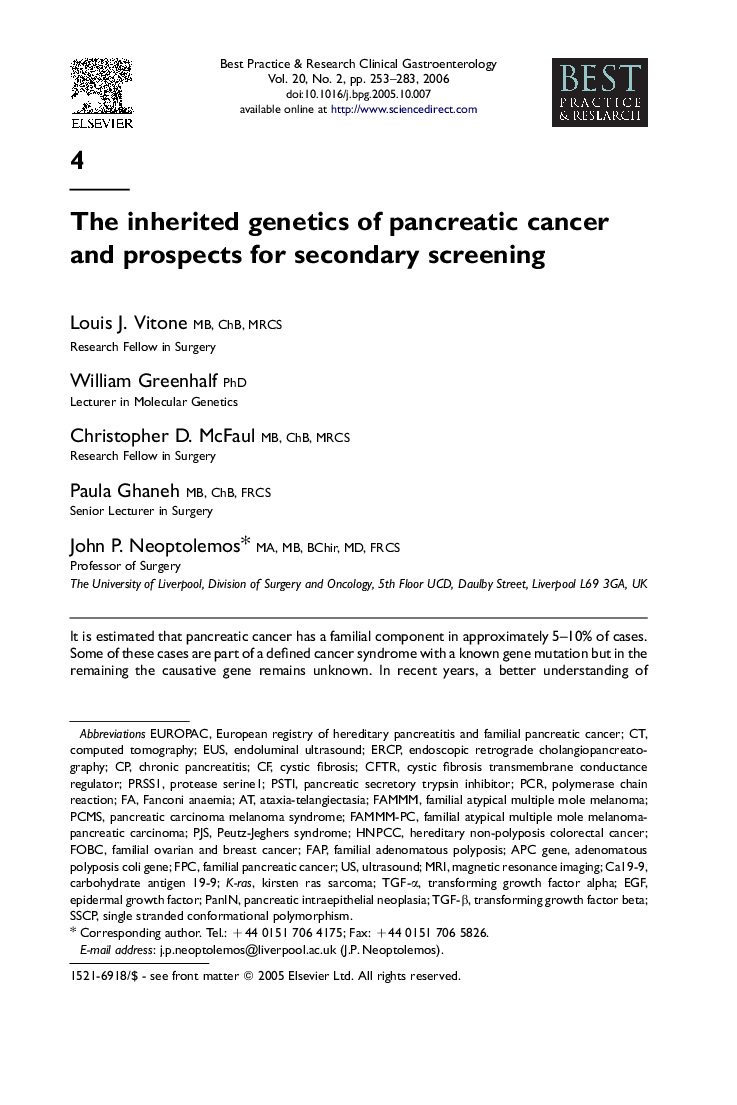| Article ID | Journal | Published Year | Pages | File Type |
|---|---|---|---|---|
| 3254870 | Best Practice & Research Clinical Gastroenterology | 2006 | 31 Pages |
It is estimated that pancreatic cancer has a familial component in approximately 5–10% of cases. Some of these cases are part of a defined cancer syndrome with a known gene mutation but in the remaining the causative gene remains unknown. In recent years, a better understanding of the molecular events that occur in the progression model of pancreatic cancer has lead to the development of secondary screening programmes with the aim of identifying early precursor lesions or pre-invasive cancer at a stage amenable to curative resection. High-risk groups who have an inherited predisposition for pancreatic cancer form the ideal group to study in developing a robust screening programme. Multimodality screening using computed tomography and endoluminal ultrasound in combination with molecular analysis of pancreatic juice are proving promising as diagnostics tools or at least serving as predictors of risk over a defined period.
